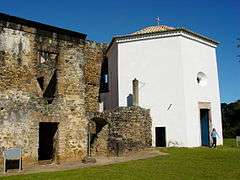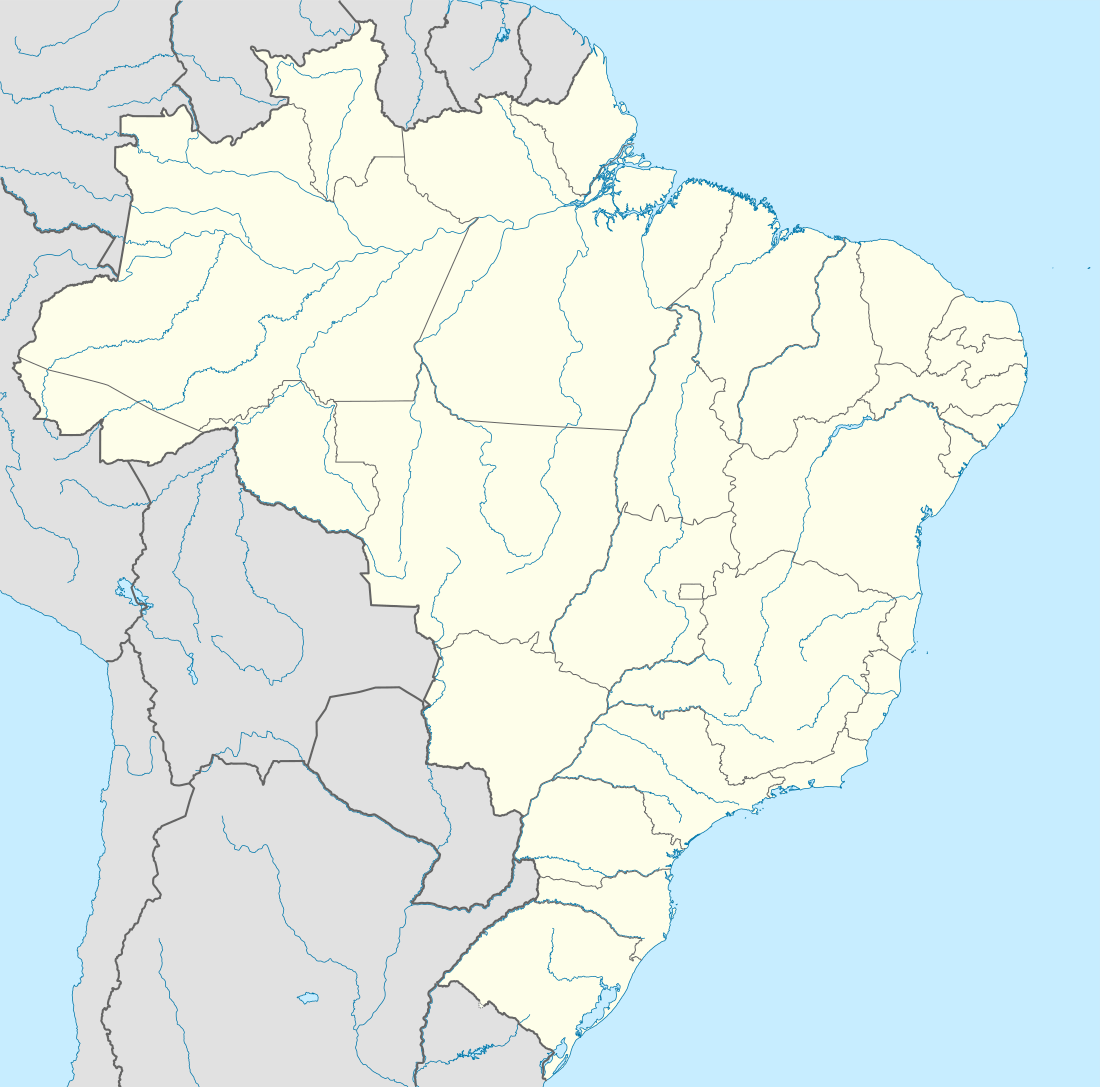Garcia d'Ávila Tower House
| Tower House of Garcia d'Avila | |
|---|---|
| Casa da Torre de Garcia d'Ávila | |
 | |
 Tower House of Garcia d'Avila Tower House of Garcia d'Avila in Brazil | |
| General information | |
| Town or city | Mata de São João, Bahia |
| Country | Brazil |
| Coordinates | 12°34′46″S 38°01′49″W / 12.579343°S 38.030148°W |
| Designated | 1938 |
| Reference no. | 128 |
The Tower House of Garcia d'Avila (Portuguese: Casa da Torre de Garcia d'Ávila), also known as the Castelo de Garcia d'Ávila, Forte de Garcia d'Ávila, is a 17th-century building complex in Mata de São João, Bahia, Brazil. It was constructed in the present-day settlement of Praia do Forte, 1,200 metres (3,900 ft) from a small natural harbor on the Atlantic coast. Tomé de Sousa (1503-1579), the first governor-general of Brazil, appointed his son Garcia de Sousa d'Ávila (1528-1609) to build a fortress on the Bahia coast. The castle sits on a hill with a good view of the Atlantic Ocean; the castle, as well as the village of Tatuapara, served as an advanced point of vigilance for Salvador and settlements around the Bay of All Saints. Alerts of the approach of enemy ships were sent from the castle to Salvador via encrypted messages of smoke and torches; they traveled from the castle through a chain of Jesuit villages and other small settlements until they reached Salvador.[1][2][3]
Garcia built a complex that included a fortified watchtower, a castle, and a church. The site is now in ruins.[2][3]
Protected status
The Garcia d’Ávila Tower House and Chapel of Our Lady of the Conception were listed as a historic structure by the National Institute of Historic and Artistic Heritage in 1938.[3]
References
- ↑ Caroso, Carlos (2011). Baía de Todos os Santos: aspectos humanos (in Portuguese). Salvador: EDUFBA. ISBN 9788523207618.
- 1 2 Mott, Luiz (2010). Bahia: Inquisição & sociedade (in Portuguese). Salvador, Bahia: EDUFBA. pp. 65–71. ISBN 9788523205805.
- 1 2 3 De Azevedo, Paulo Ormindo. "Garcia d'Ávila Tower House and Chapel of Our Lady of the Conception". Lisbon, Portugal: Heritage of Portuguese Influence/ Património de Influência Portuguesa. Retrieved 2017-07-13.